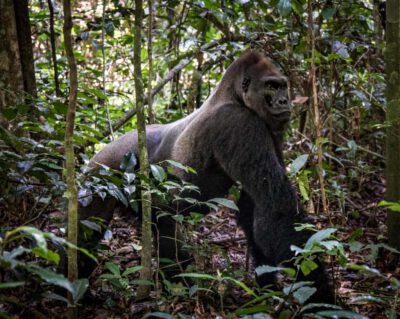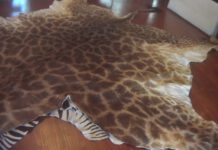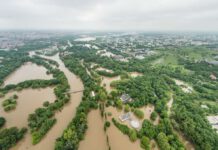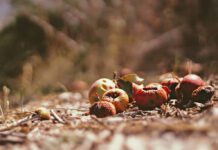
Djéké Triangle Forest, Republic of Congo – One of the world's most iconic lowland gorillas, Kingo, who was featured in international news media and inspired three decades of conservation, was found dead on Dec. 26, 2023. Lowland gorillas are listed as Critically Endangered by IUCN. Kingo's age is estimated to be 45 years. The cause of his death is believed to be age-related complications.
Kingo gained his international fame after being featured in reports by BBC, National Geographic, and other media outlets. He has been called by conservationists a symbol of nature whose life inspired the protection of Congo's Nouabalé-Ndoki National Park and all of its wildlife, and whose legacy will inspire the protection of similarly highly intact, ecologically intact areas across the world for generations to come. More than a dozen documentaries and nearly 50 scientific articles have featured insights from Kingo's life.
The imposing yet gentle presence of Kingo captured the hearts of researchers, local communities, and tourists since the 1990's when Diane Doran's research team from Stony Brook University in New York began studying him to better understand Western lowland gorillas (Gorilla gorilla gorilla), which at that time were amongst the least understood great apes. Kingo takes his name from the Ba'aka expression ‘kingo ya bolé,' which means ‘he who has a loud voice.' Researchers were able to locate Kingo's group, in the early days of their research, due to his distinctive bark. In 2006, this work was taken on by the Wildlife Conservation Society.
“Kingo's legacy is immense,” said Jancy Boungou, a research assistant for WCS's Mondika Gorilla who followed Kingo up until his last days. “He has always inspired me and my colleagues to protect gorillas and the Nouabalé-Ndoki National Park.”
The home of Kingo was Nouabalé-Ndoki National Park—a 1,500 square-mile (4,238 square-kilometer) protected area which WCS co-manages with the Congolese government. It is home not only to gorillas, but also forest elephants, chimpanzees, bongo, sitatunga, and other spectacular wildlife. WCS's long-term presence in the park, working with the government and Indigenous Peoples, has allowed researchers to gain incredible insights into the life history of the otherwise private lives of gorillas.
“Through the years, the work accomplished with Kingo, and the launch of ecotourism has led to improved protection for the Nouabalé-Ndoki National Park, culminating in the formal addition of Kingo's home – the Triangle Forest –to the Park in 2022. Kingo has enabled a better understanding of Western lowland gorilla ecology and behavior; and, through tourism, created a pathway to sustainable livelihoods for Indigenous Peoples and local communities in the area,” said WCS's Ben Evans, Director of Nouabalé-Ndoki National Park.
“Even by gorilla standards, Kingo was a physically impressive silverback with massive arms and broad shoulders that powered his confident swagger through the dense forests of the Congo Basin,” said David Morgan, Director of the Goualougo Triangle Ape Project (GTAP) which has supported WCS efforts for more than ten years. “Generations of silverbacks have visited those same trees over hundreds of years, but it is unlikely that any were as successful in their tenure as Kingo.”
Wildlife Conservation Society (WCS)
www.wcs.org










